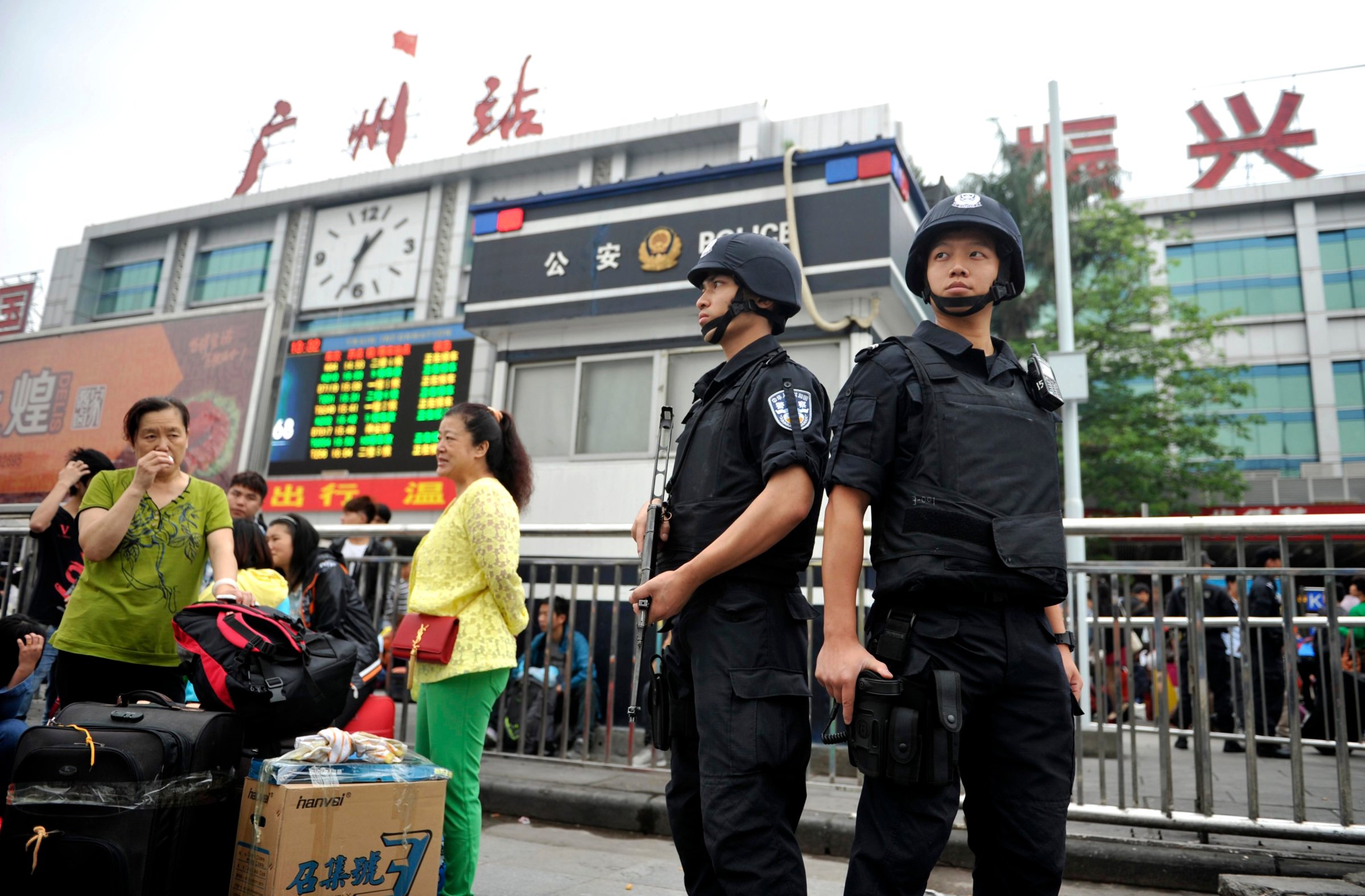
Updated: May 6, 2014, 7:10 a.m. E.T.
For the third time in months, and the second time this week, there has been a knifing at a Chinese railway station. At approximately 11:30 a.m. on Tuesday, local time, one or more men stabbed at passersby outside a train station in the southern Chinese city of Guangzhou. Six people were injured, one critically, according to state-media reports. (Local press initially said there were four attackers, but Chinese police now say the suspect acted alone; eyewitness accounts vary.)
Photographs from the scene show what is becoming alarmingly common: blood on the pavement and bodies on the ground. Last Wednesday, a bomb and knife attack at a railway station in the city of Urumqi, in China’s far northwest, left three dead and dozens injured. On March 1, a coordinated assault on a railway station in Kunming, in southwestern China, left 33 dead and more than 100 injured.
It is not yet clear if the incident in Guangzhou is related to what happened in Urumqi or Kunming. Chinese authorities blamed both those attacks on separatists from the country’s predominantly Muslim Uighur minority. President Xi Jinping, who wrapped up a high-profile Xinjiang tour just before the Urumqi attack, last week announced plans to arm Chinese police officers with guns. In the wake of the recent spate of violence, he ordered the army to help local government deliver a “crushing blow” to terrorists.
Details from Guangzhou are still scarce, but early eyewitness accounts suggest the attacker or attackers wore white and brandished long knives. A woman named Liu Yuying told China News Service, a Chinese news agency, that she was exiting the station when she saw two men with “watermelon knives.” The Guangzhou Journal reported that they carried blades a half-meter (or about 20 in.) long.
Though the motive has yet to be determined, Chinese netizens were quick to connect the violence in Guangzhou to earlier incidents and condemn authorities for not doing enough to prevent mass attacks. “The counterterrorist effort is not enough,” one person wrote. “The innocent people are paying the price.”
More Must-Reads from TIME
- Donald Trump Is TIME's 2024 Person of the Year
- TIME’s Top 10 Photos of 2024
- Why Gen Z Is Drinking Less
- The Best Movies About Cooking
- Why Is Anxiety Worse at Night?
- A Head-to-Toe Guide to Treating Dry Skin
- Why Street Cats Are Taking Over Urban Neighborhoods
- Column: Jimmy Carter’s Global Legacy Was Moral Clarity
Write to Emily Rauhala / Beijing at emily_rauhala@timeasia.com